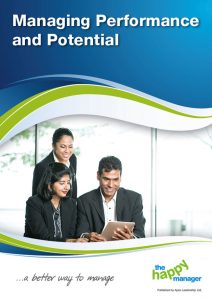Employee Performance Review
Make Expertise Count!
Make expertise count!
A typical employee performance review will often assess the expertise of an employee, then identify development needs.
The result will probably be in the form of a development plan, which is useful, but an effective review needs to do much more. At its core, an employee performance review should do two things.
Firstly it should determine how the expertise of the employee has made an impact during the period being reviewed. Secondly, it should identify and plan how that person can make more of an impact in the future.
A performance review is normally one stage in a process, discussed in more detail in: Performance Management Cycle.

This article is part of our series on How to Motivate Employees to PERFORM. Knowing how to motivate employees is one of the most important aspects of a manager’s job. As important though, is the need to manage the factors that contribute to that motivation, and to create the conditions for people to perform and realise their potential. Our tool to help you achieve these management skills is the Apex PERFORM model. It stands for:
This the second article in our series. When reading it, remember three key points. Firstly, the importance of identifying the employee’s expertise. Secondly, putting that expertise to work, preferably where it can contribute the most. Thirdly, ensuring expertise is kept current. Remember that expertise, whether in the form of skills or knowledge, is dynamic. It needs refreshing, renewing and replacing, as and when new ideas make some of the old obsolete. The importance of this third point has probably never been more relevant than in a rapidly changing technological workplace, such as exists today.
In the PERFORM model we use “expertise” as a general word to include the abilities, experience and attitudes people need to do their jobs. In this context expertise consists of:
What expertise does the employee bring to their work?In the workplace, there is little merit in having skills and knowledge that are not used, or are under-used. In this context, the value of expertise is when it is put to work, contributing to the performance of the team. An employee performance review should look back, then look forward. In doing so it should ask questions, such as:
Ensuring that people have the skills and the knowledge to do the job is critical to ensuring high performance. The PERFORM model has been designed to help you with this critical management function. However it’s important to remember that while knowledge and skills can be taught, aptitude and behaviour are driven by our own personalities and value sets. Therefore at the recruitment stage it is important to ensure that the person fits both the job and the culture of the organization. It’s far easier to build on what’s there, than trying to put in what is missing! As Peter Drucker said:
“It takes far less energy to move from first-rate performance to excellence than it does to move from incompetence to mediocrity.”
If you’re interested in applying our principles of performance management turn to our fantastic e-guide bundle. Including a colossal 253 pages and 95 tools, it contains 8 key guides we recommend to help you manage better performance, at half price!
It’s All About Performance (24 pages, 4 diagnostic tools)
Managing Performance and Potential (26 pages, 4 tools)
Conducting a Performance Review (33 pages, 8 tools)
Manage Your Own Performance (28 pages, 6 tools)
Motivating Performance (37 pages, 10 tools)
Performance Management Skills (19 pages, 7 tools)
15 Performance Management Tips (20 pages, 15 tips)
Performance Management Toolkit (66 pages, 41 tools – divided into the seven steps of a performance management process).
I like the way you introduced material I haven’t seen before (SHARP action) & the tools to apply the learning. The price represents really good value for money and I will be checking out more of your material over the coming months.
Try our great value e-guides


